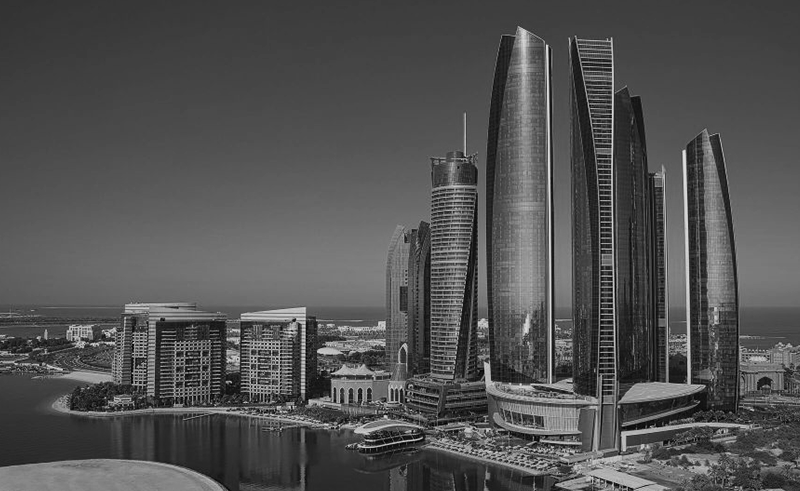Masterclass With Entrepreneurial Tech Pioneer Shinez Chalabi
Chalabi shares her views on how women can embrace entrepreneurship and make an impact on the region’s startup space.

StartupScene’s ‘Masterclass’ op-ed series invites some of the region’s most dynamic entrepreneurs to divulge their secrets, dispense their knowledge, and share their experiences with the MENA region’s ever-growing startup ecosystem. Whether they’re written by old guards or trailblazers, these masterclasses have been created to illuminate the path for aspiring entrepreneurs.
This week’s Masterclass contributor is Shinez Chalabi, Head of Startups and VCs Growth at Google MENA. After working extensively with female founders in the region, Chalabi is sharing her personal views on how women can embrace entrepreneurship and create impact in the Middle East’s startup space.

Why is MENA the place to be
In recent years, the MENA region has experienced a significant growth in entrepreneurial activities. This growth is driven by several key factors: a young population, increased access to funding, supportive governmental policies, and a thriving tech scene. As a result, the MENA region has become an attractive destination for both startups and investors, globally.
More specifically, at the heart of this change is youth. Characterised by a young, tech-savvy population, the region boasts a growing talent pool primed to create new ideas and propel innovation. This demographic trend has attracted the interest of local, regional and global investors, who are increasingly turning their attention to MENA as a source of promising startups.
Concurrently, governments across the region are embracing entrepreneurship as a pivotal instrument for diversifying their economies. They have initiated regulatory reforms and launched a myriad of programs aimed at fostering innovation and facilitating scalable growth. This concerted synergy of efforts has cultivated a fertile terrain where startups flourish, thrusting MENA into the global spotlight as a rising star within the startup universe.

Why is it so important for Arab women to be active in the startup ecosystem
Gender parity continues to be an enduring challenge in the global tech landscape. The United Nations' data indicates that MENA has one of the largest disparities in entrepreneurship, with less than 5% of businesses being led by women, in contrast to the global average of 23%. Moreover, the region grapples with one of the lowest female labour participation rates.
However, in MENA, a transformational wave is taking place, spearheaded by Arab women. Their significance in the entrepreneurial landscape cannot be overstated. In a region often characterised by conservative norms, women are emerging as instrumental agents of change, contributing significantly to economic diversification, fostering innovation, and steering toward a more inclusive future.
The role of women in the region’s entrepreneurial ecosystem is of paramount importance for many reasons. One key aspect is their potential to unlock economic growth and job creation. As nations seek to reduce their dependence on traditional sectors like oil and gas, entrepreneurship becomes a strategic driver for economic diversification. Women, who have frequently been underrepresented in the workforce, constitute an untapped wellspring of innovation and business development. Empowering women to work in the startup scene of MENA harnesses their talents and creativity, giving rise to new businesses and job opportunities.

Ok, now, how? You don’t have to be a founder to work in the startup ecosystem
While being a founder is certainly the most direct path to enter the ecosystem, there are also alternative routes available.
1) The funding route
The venture capital (VC) and funding sector offer a promising avenue for women in MENA to play a significant role in shaping the future of startups and innovation. In recent years, there has been growing recognition of the untapped potential of female investors and entrepreneurs. A notable development is the emergence of female-focused funds and investing networks that aim to empower women in the startup ecosystem. Organisations like WAIN (Women's Angel Investor Network), One Day Yes, Dana Global and 2022 Female Angels are prime examples of initiatives that encourage Arab women to explore careers in VC and funding. These platforms provide mentorship, networking opportunities, and financial support to women-led startups, fostering an environment where female investors can thrive and make a significant impact.
2) The big tech route
As the tech ecosystem in the region continues to flourish, several big tech companies are actively involved in fostering entrepreneurship through various startup programs. For instance, companies like Google, Microsoft, and Amazon have launched initiatives that provide mentorship, resources, and funding to high promising startups in the region. This presents an opportunity for Arab women to embark on exciting careers in tech, whether as developers, data scientists, or digital marketers.
3) The accelerator and incubator route
Arab women looking to make a significant impact in the dynamic world of startups in MENA can also consider pursuing careers in accelerators, incubators or in a similar enablement organisation. These organisations play a crucial role in nurturing and guiding early-stage companies to success. MENA boasts a growing ecosystem of accelerators and incubators, each offering a unique platform for women to contribute their skills and expertise. Prominent examples include Womentum, a female-focused accelerator dedicated to empowering women-led startups, as well as Flat6Labs, 500 startups, Techstars, the DIFC accelerator and C3 impact accelerator, all renowned startup accelerators with a presence across the region. By joining these initiatives, Arab women can become instrumental in providing mentorship, investment, and strategic guidance to aspiring entrepreneurs, while simultaneously breaking down gender barriers and championing inclusivity within the MENA startup ecosystem.
4) The government route
Finally, Arab women with a passion for driving innovation and supporting startups in MENA can explore fulfilling careers in government initiatives dedicated to fostering entrepreneurship. MENA governments are increasingly recognizing the pivotal role that startups play in economic diversification, and they're actively implementing policies to support this thriving ecosystem. Initiatives like the ‘Dubai Future Accelerators’, ‘Jordan Investment Commission’ (JIC), ‘Oman Investment Authority’ (OIA) and ‘Qatar Development Bank’ (QDB) provide women with the opportunity to work closely with startups, facilitating their growth and success through regulatory support and mentorship.
By joining these government-driven programs, Arab women can contribute to shaping the future of their nations' economies, promoting innovation, and breaking gender barriers in the process. It's a pathway for them to make a tangible impact while forging a brighter future for the entire region.
As we delve into the significance of women's participation in the ecosystem, it becomes clear that they are not just contributors but instrumental change agents, propelling economic diversification, innovation, and inclusivity in the region. MENA's emergence as a global startup hub presents a plethora of opportunities for Arab women, whether as founders or professionals. The avenues are diverse and the path may be winding, but the destination promises a brighter, more inclusive future for the entire MENA region.
- Previous Article Italian-Palestinian Duo No Input Debuts Eponymous Electro EP
- Next Article Egyptian Embassies Around the World



























